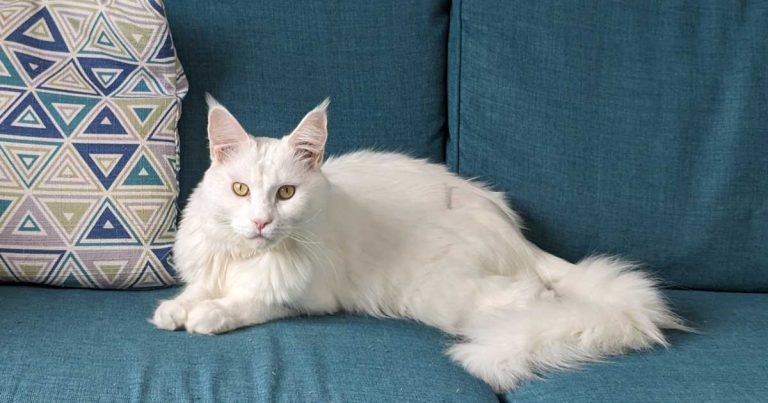13 Feb 2025
A Birmingham referral hospital vet said the infection is much more common to dogs and he had not seen such a severe case in a cat.

Image: © IVC Evidensia Referrals
A cat paralysed by a rare infection that is more commonly seen in dogs is able to walk again following treatment at a West Midlands referral practice.
A vet at the Blaise hospital in Birmingham said he had never seen such a case of cervicothoracic discospondylitis as that of four-year Geralt in a cat.
Marios Charalambous, an ABVS American, EBVS European and RCVS-recognised specialist in veterinary neurology, said Geralt, a Maine coon, had a “severe and extended” infection that was compressing his spinal cord.
He added: “It’s an extremely rare case, which I have only seen previously in dogs, never in cats.”
Although culture testing identified the bacteria responsible for the infection, Dr Charalambous admitted he was not optimistic about Geralt’s prognosis because of the severity of his condition.
However, he continued: “To my surprise, there was a marked improvement.
“Within a couple of weeks of receiving the treatment, he had already started walking. And when I examined him a few months later, he was virtually normal.
“Our most recent MRI showed that while there were some chronic changes resulting from the infection, there no longer appeared to be an active lesion.”
Dr Charalambous said: “And while there was still a mild compression of the spinal cord, it was much less than before, and Geralt compensates very well.
“This was one of the most severe cases I have seen, and the first in a cat, I am delighted with the outcome. If we hadn’t acted, Geralt would either have died from the disease or would have to be euthanised.
“It shows that even when the prognosis seems poor, it is always worth trying to do something if the owners are motivated.”